Grower Stories #113: Larry Smith
Published
Updated
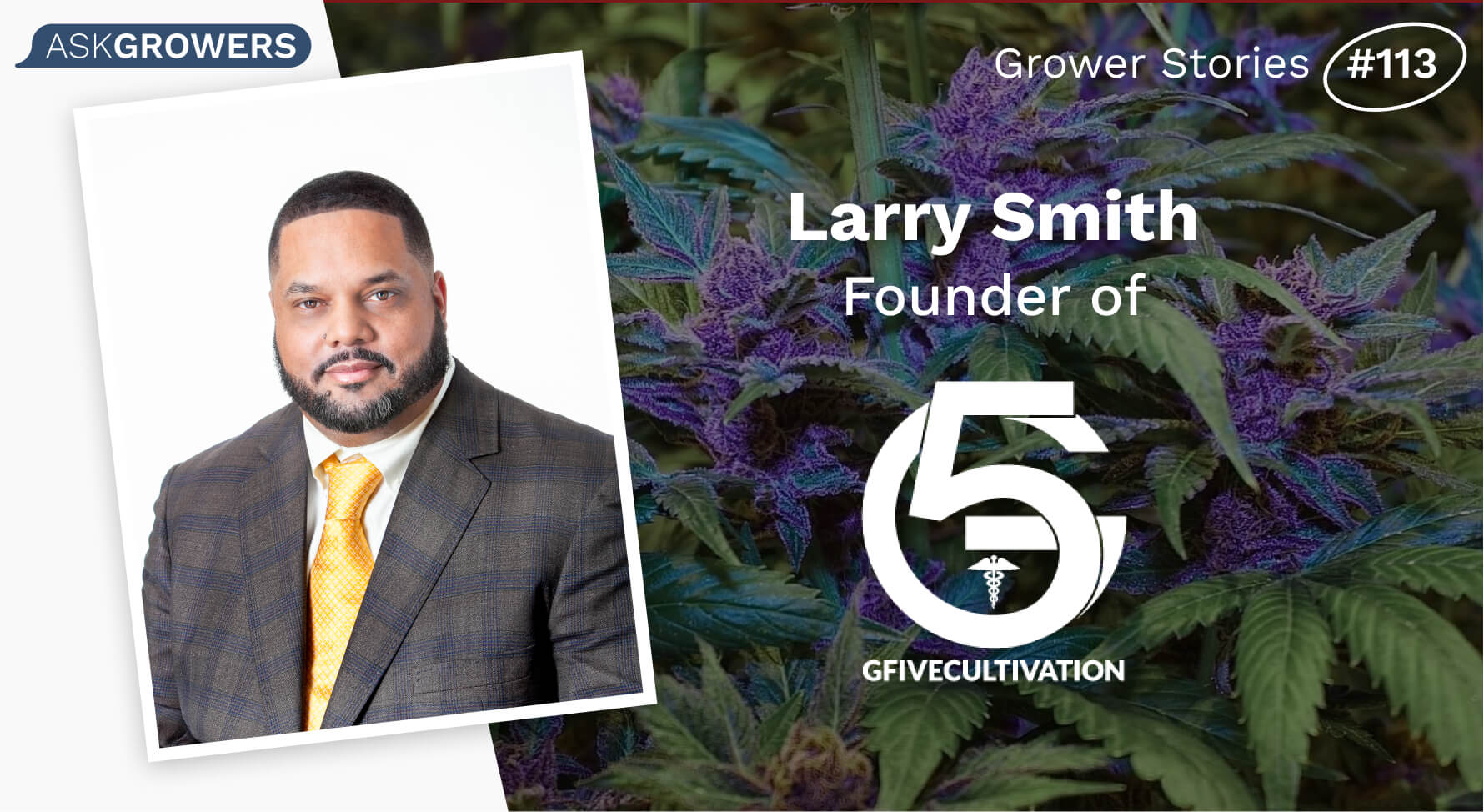
Larry Smith on His Brand and Growing Unusual and Rare Cannabis Strains
Larry Smith, founder of GFive Cultivation in Las Vegas, is always looking for ways to stand out. The first African American grow house owner in Nevada, Smith avoids growing the same “mainstream” strains that his competitors are peddling. Instead, he and his team of 10 employees have searched around the country for the best genetics to create one-of-a-kind strains. Smith spoke with AskGrowers on his tips for growing incredible weed and standing out in an increasingly competitive industry. #growerstories
Chris Kudialis : Where does the name GFive come from?
Larry Smith : My son came up with it. We love planes and we used to go sit out at the airport and watch the planes land. He was a youngster so he was always intrigued with the G5 jets. He told me “We have to have a brand that’s fly.” So GFive to us is a symbol of excellence and class.
Chris : How big are your operations now, after several years in business?
Larry : We’ve really started to focus more on family and the communities we serve. At first, I was in that rat race where you're like “oh you need to hire a bunch of people and keep getting bigger and bigger.” But we’re at an ideal size with our staff of 10, and we also hire temporary workers to help with the trimming and packaging.
We put out 6,000 pounds of weed each year from our 10,000 square-foot building. We sell to 8 to 10 dispensaries and usually have seven or eight different strains to offer at a time.
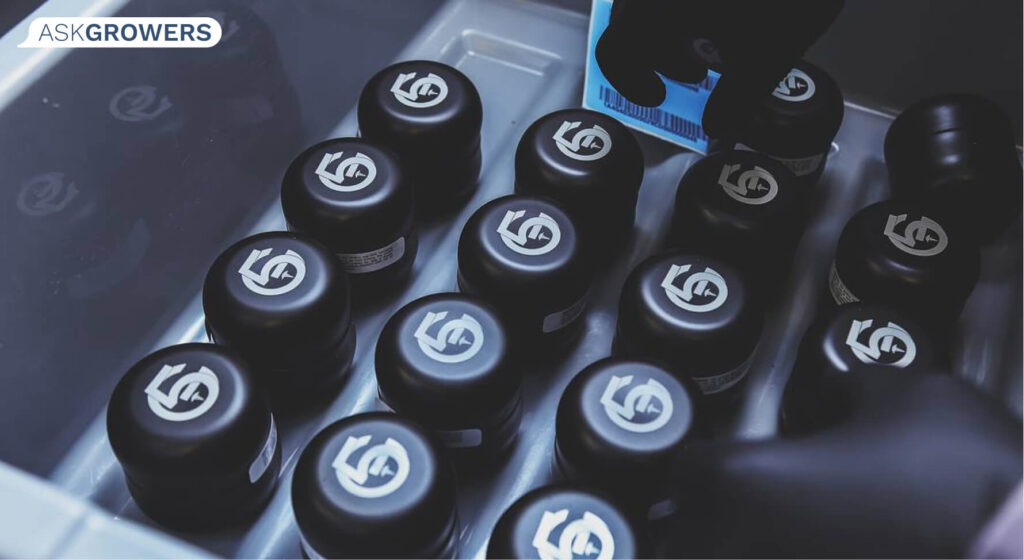
Chris : How do you grow your plants at GFive?
Larry : We’ve looked at eight different ways to grow, but we decided on using rockwool a couple years ago and we’ve done it ever since. We know there's a lot of people that do it a different way, but for us, when you're doing it on a commercial scale, rockwool just seems like the cleanest and easiest way for us to grow.
We have 6,000 plants and we used to use soil. But it’s a lot of labor to have that in our environment. There are a lot of bugs and things that you have to contend with. We were also having issues with the sourcing of our soil. I mean, you don't always know where the soil is really coming from and you don't know what chemicals are in there, which can then cause problems during testing. There were so many factors for us that just made rockwool the best way to go.
Chris : What are your favorite products that you sell?
Larry : We have a strain with the rapper Cam’ron called Pynk Mynk. And I was just in Oregon last week finding the best possible strains, because at the end of the day it's all about genetics: giving the people what they really want. And that's the tough part, finding the really good genetics. Getting genetics is like me being a general manager for a sports team. You have to find the players that best suit your team. You really have to go out and find the best strains out there.
Everyone has Do-Si-Dos and Blue Dream. But we want to dig deep in the archives. We want to bring out some things that people don't have. That's my hobby and our growers have a big role in that.
Chris : You have one of the most ethnically diverse staffs of any grow house in Vegas. How have you selected your staff?
Larry : It's really a family-run business. From my in-laws to my nephews, very sharp people. I know sometimes people think families can't work together. But honestly, it eliminates a lot of headaches, and everybody knows what they’re doing. My wife pretty much runs the compliance side of the business. I’m really lucky to have a good team around me. We’re small, but we're moving mightily.
But like I said, we also hire temporary workers all of the time. And I make sure those temp workers are also people from traditionally marginalized ethnicities that we can give an opportunity to work in cannabis legally.
Chris : What are some of the biggest challenges for growers in the industry?
Larry : The biggest to me is that there are so many different discrepancies in the testing regulations. It's pretty bad. You test something and it fails for Aspergillus, but then you get a retest at another lab and the same batch of flower passes the test. It's like ‘well which one is it,’ right? So to me that's the toughest challenge right now. There needs to be some kind of universal industry standard or requirement for a certain type of machine that all of the testing labs use and that will produce more consistent results.
Another thing is that sometimes our industry feels cliquish. We’ve been around since 2015 but we still have challenges getting in the door with some dispensary clients. It’s like they already have their cultivators and they don’t want to try anything new. It’s very competitive. But I think there’s always going to be opportunity for GFive, because we're always trying to create really good medicine. We want the cannabis to speak for itself. And so far that approach has done pretty well for us.
I also think the taxes are too high. I’d like to see the state say “You know what, let's get rid of this 15 percent tax and just make it a flat 5 percent across the board or 3 percent.” It’s embarrassing that you can go get a prescription for Oxycodone, or whatever they call that stuff that’s literally killing people, and it's taxed at 2 percent. But yet we’re still taxing cannabis at 15 percent.
I can’t emphasize enough the value of marijuana as medicine. When COVID hit here, marijuana became an essential business and it put medical cannabis at the forefront.
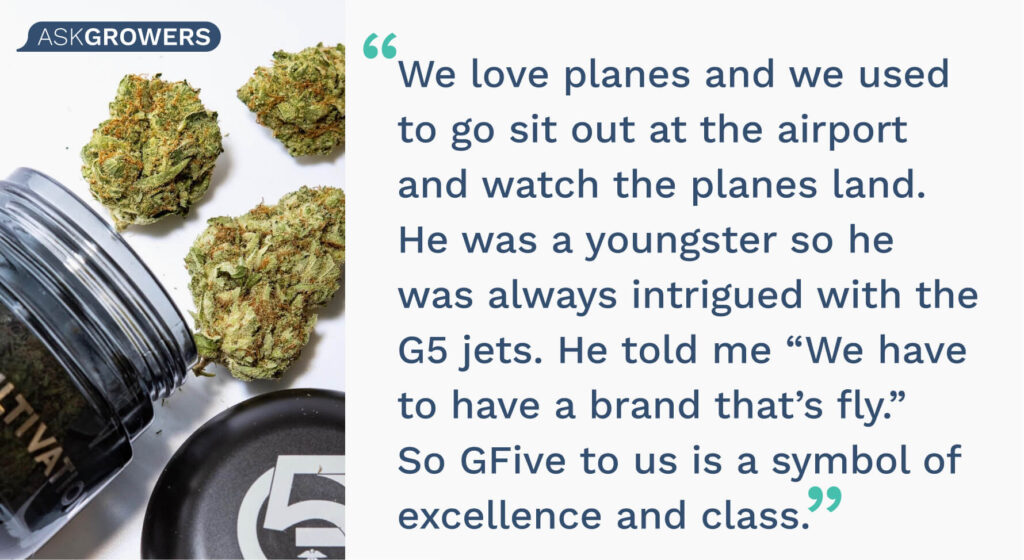
Chris : Why is there so much emphasis among growers and dispensaries on strains with high THC?
Larry : I think it’s because there’s a lack of education out there. Consumers for some reason think a greater percentage of THC means the flower is stronger and that they’ll get a better high. So as a result you have everybody trying to get over 20 percent THC in their strains.
The truth is, I can have an 18 percent with high myrcene and limonene that’s much better than a 25 percent THC. But because people are basing it off of the THC, I'm not getting the price of a good pound that I should. So that really affects the market.
The education part of it is training people to understand that a flower with 17 or 18 or 19 percent THC can still be really good because of the terpene profile. And anybody that smokes or understands cannabis knows this.
Chris : You’ve been highlighted for your role in bridging the gap for minorities wishing to enter the industry. What do you think needs to be done so that more traditionally excluded minority groups can get involved in legal cannabis?
Larry : Well first of all, we don't want anything just because we're African American. We let our work speak for us, and we do clean business in the state of Nevada. I take pride in representing the state because I was born and raised here.
It's really frustrating for me though that we even have to have all of these diversity policies. They’re definitely necessary for now, but they’re being taken advantage of by a lot of companies. They go out and put all of these African Americans and Hispanics on their licenses with no real intentions of having these people be a part of their business. It’s all a show, basically, to manipulate and take advantage of the diversity regulations.
The biggest thing in Nevada, I think, is the state needs to cut the requirement that prospective cannabis business owners have to show $250,000 in capital before opening shop. That’s ridiculous. That is a huge process of elimination right there. To come up with $250,000 is pretty tough for a lot of people from African American and Hispanic communities. And I get it, the politicians make the excuses that they don't want to have the Pablo Escobars of the world opening businesses in town. But the reality is Escobar is going to find his niche in the market - legal or illegal - either way. So I just want the state to be transparent, fair and honest, and help us to level the playing field by removing some of these unnecessary barriers to entry.
Chris : What are some of your other strains?
Larry : We have two celebrities that are pushing our brand. One is rapper Cam’ron. The other is Big Baby, who is a comedian. So they really represent the brand to the fullest. We're just coming out this month with a Big Baby Ice Cream Cake strain. We have Skittles Cake, but that's one we're kind of phasing out now, because a lot of other cultivators also have Skittles Cake so we want to be different and get away from that. We just got some Acai Berry and we have Acai Runtz and Banana Runtz. We really have some great strains and getting those strains together and finding the best genetics was a real journey. It’s a lot of hard work, but definitely worth it.
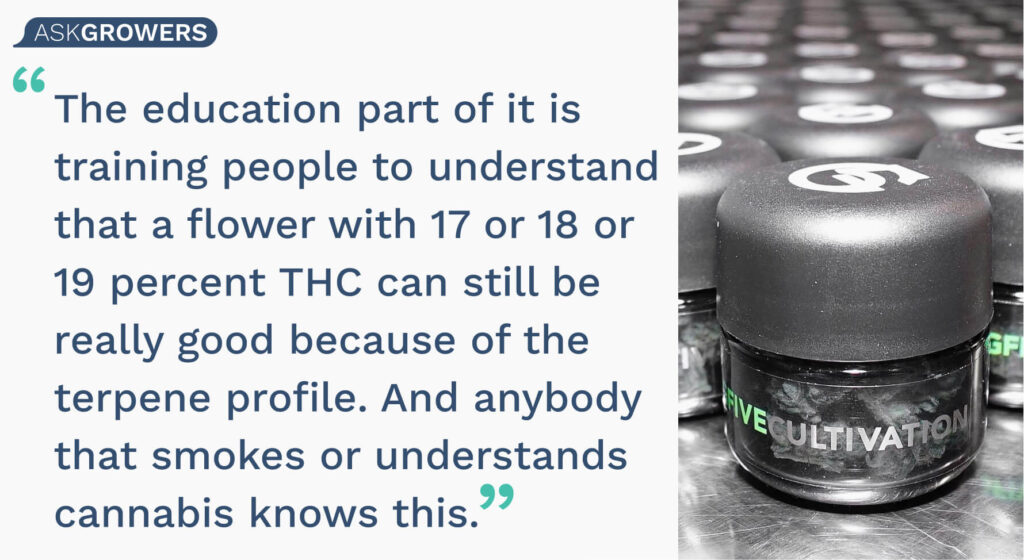
Chris : Where does most of the hard work come in growing strains like those?
Larry : You have to really make sure that that strain is going to test the proper way. We're looking for certain tests to be able to bring those things to market, because we may have four or five different genetics of the same plant at times and we have to run all those tests to see which one is the best genetics.
It can take months and even years for me to be able to put a new strain, just because we want to make sure we put the best strain possible to have all the effects for it. I mean, we've tested some beautiful things. We had a Banana Pie strain. It was beautiful. I mean just absolutely beautiful. And it only tested at 10 percent THC. So it was like “well, no one's buying that.” It smokes great, it has a really high terpene profile, but unfortunately none of our buyers are going to give it a shot at 10 percent THC.
Chris : Do you plan to apply for a license for the new marijuana consumption lounges coming out in Nevada for the first time next year?
Larry : Definitely. I was very disappointed that we didn't get a license for the last round of dispensaries (in 2018). But I really do think Nevada’s Cannabis Compliance Board is taking some good strides to make our industry better and more diverse. There were a lot of problems with the (former regulating body) Department of Taxation, as several court cases in recent years have shown. But the CCB is definitely putting the industry on a better track, and I appreciate what they’ve been doing.
As an example, flower that fails testing no longer has to be thrown out, thanks to the CCB. They’ve said now we can still use it for extraction. So we can still make something out of the flower and get some money for it, albeit a lower amount. In the past, when cultivators were told by the state just to trash pounds and pounds of marijuana, it was asking for problems. I heard countless stories of people taking their weed out the back door and selling it on the black market. And it’s good that the CCB recognized the problem and fixed it. They’re working a lot more collaboratively with the industry than the Taxation people did.
You can follow GFive Cultivation at:
Thank you so much, Larry Smith, for taking the time to do the interview.
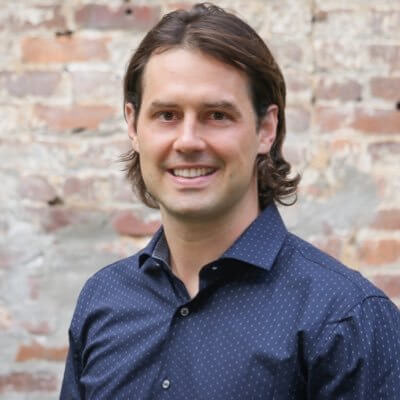
 Interviews
Interviews
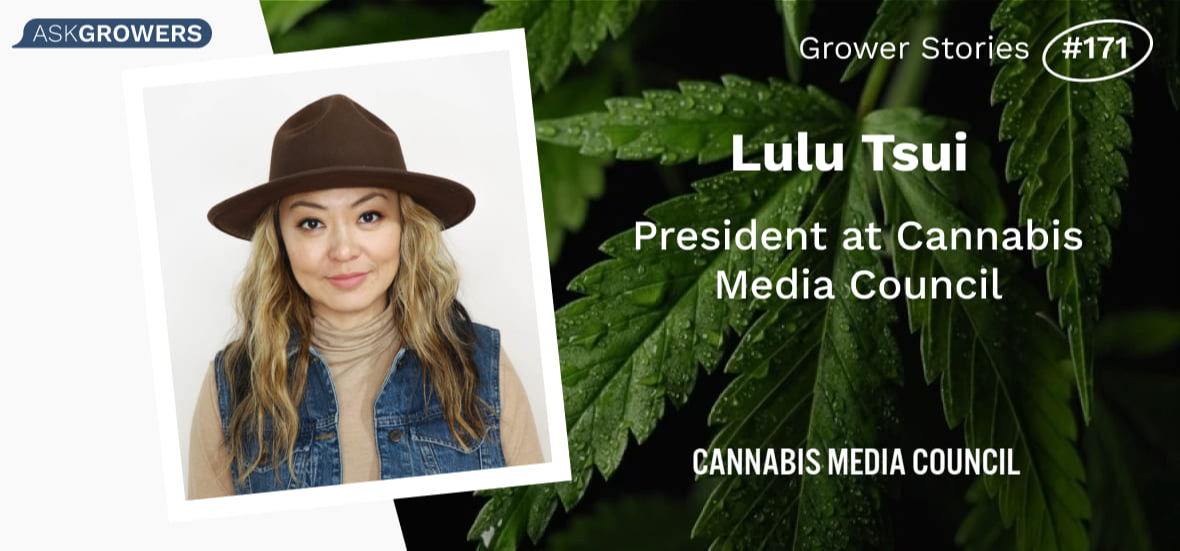
.png)
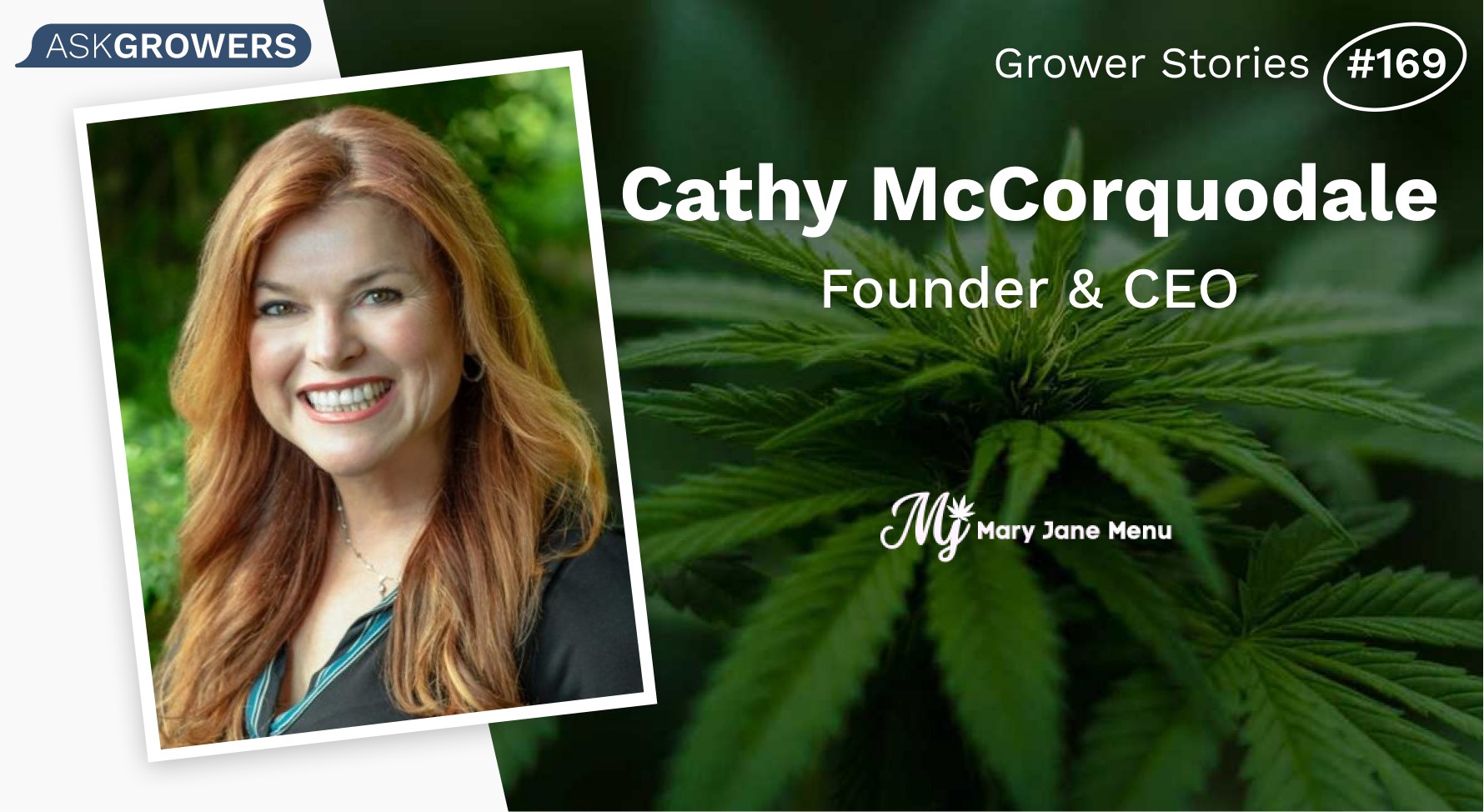
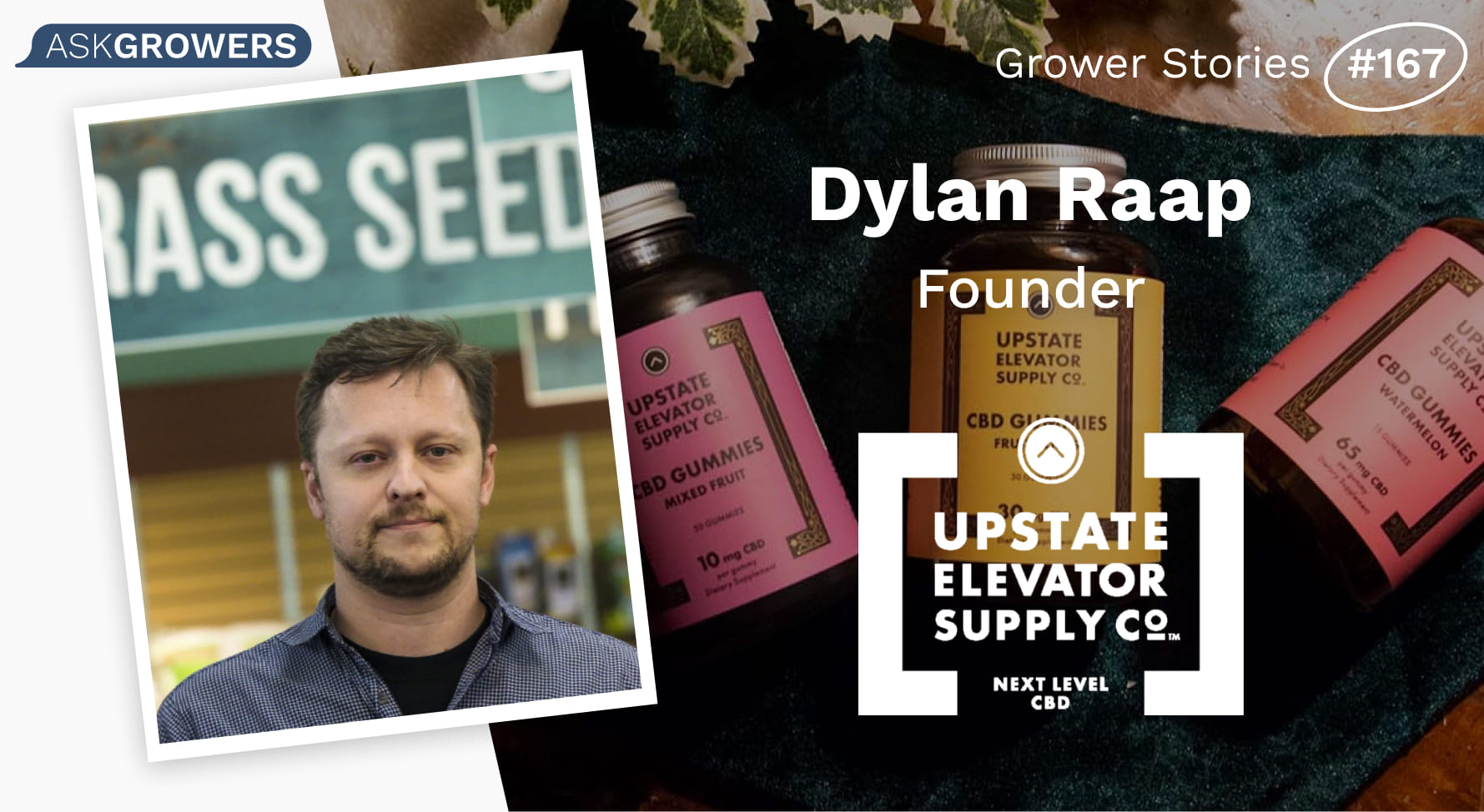
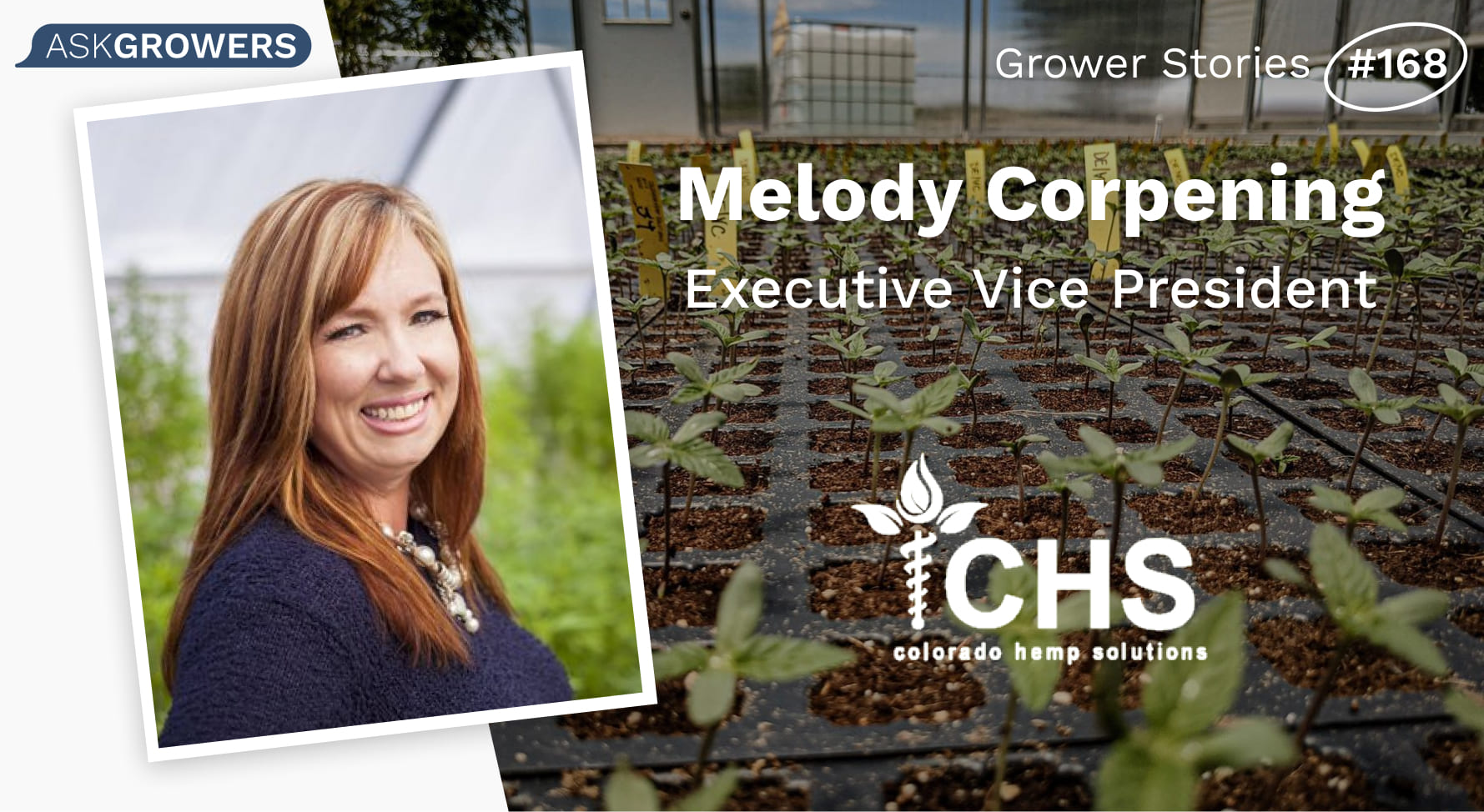
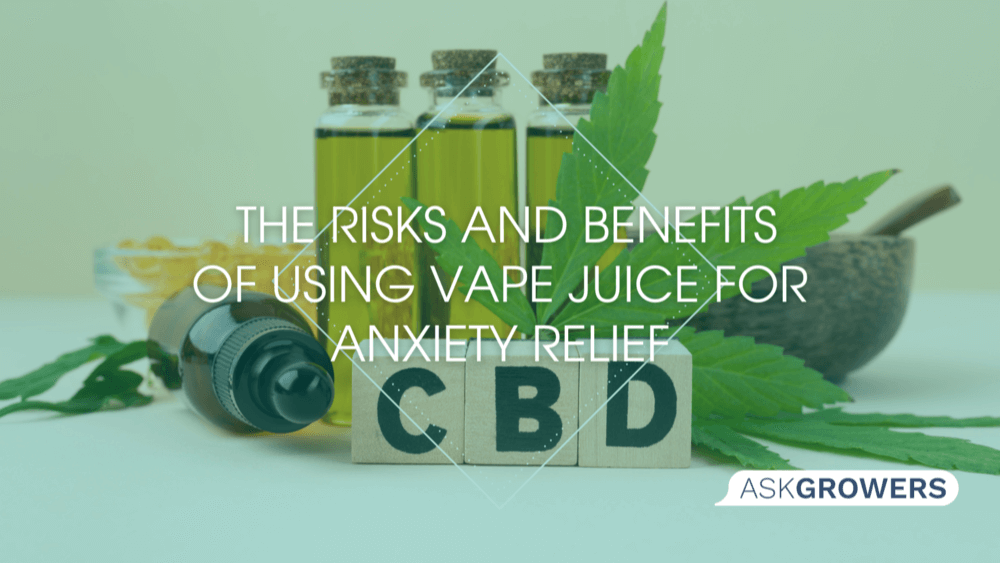
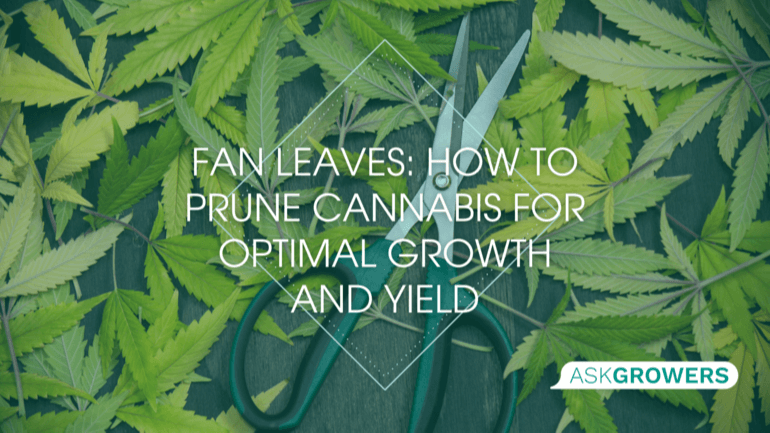
 (1).png)
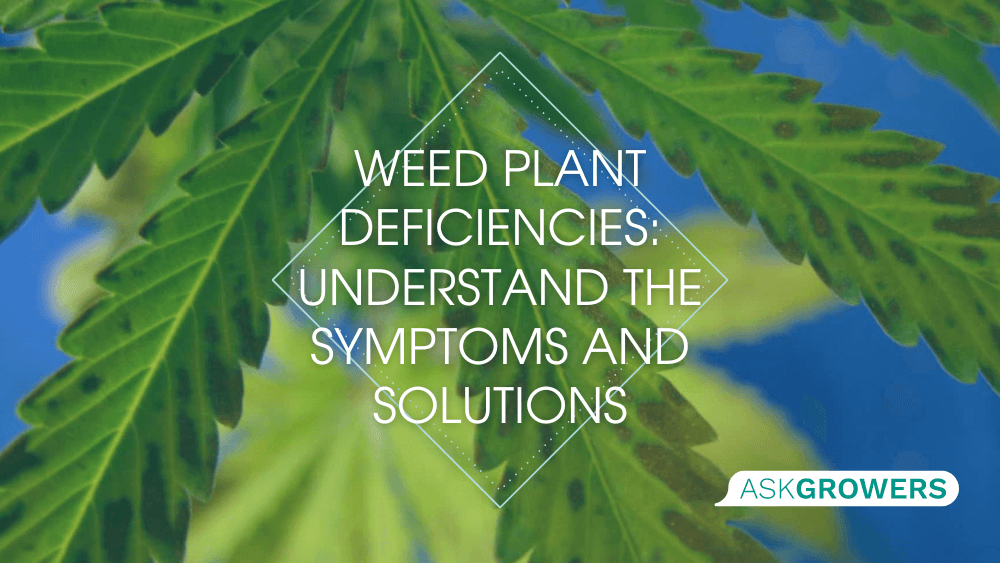
.jpg)
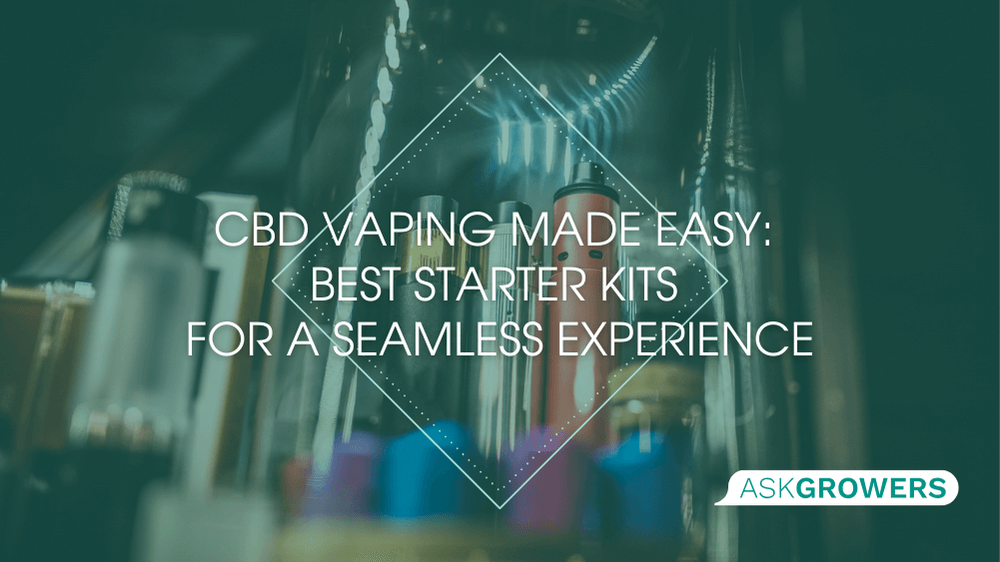
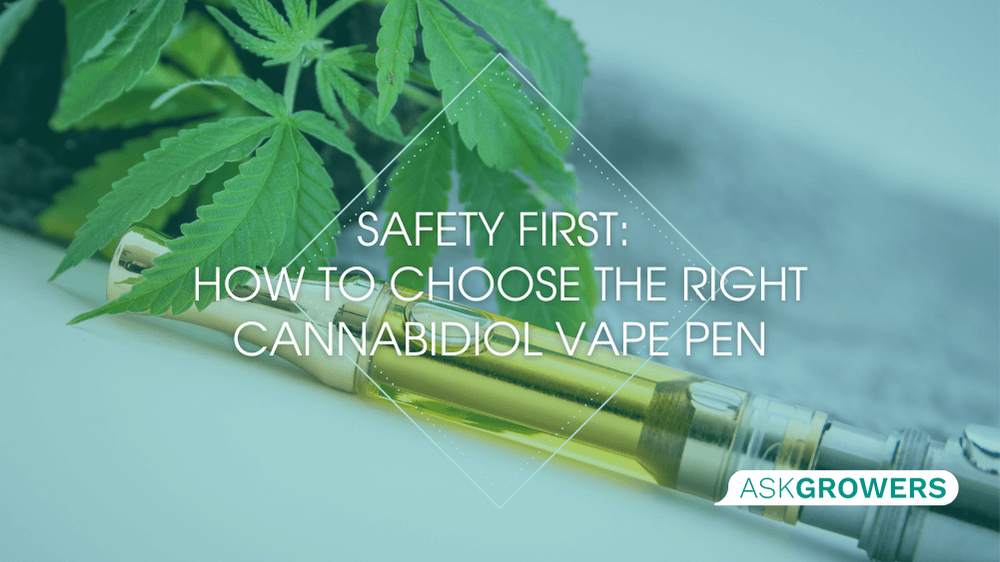
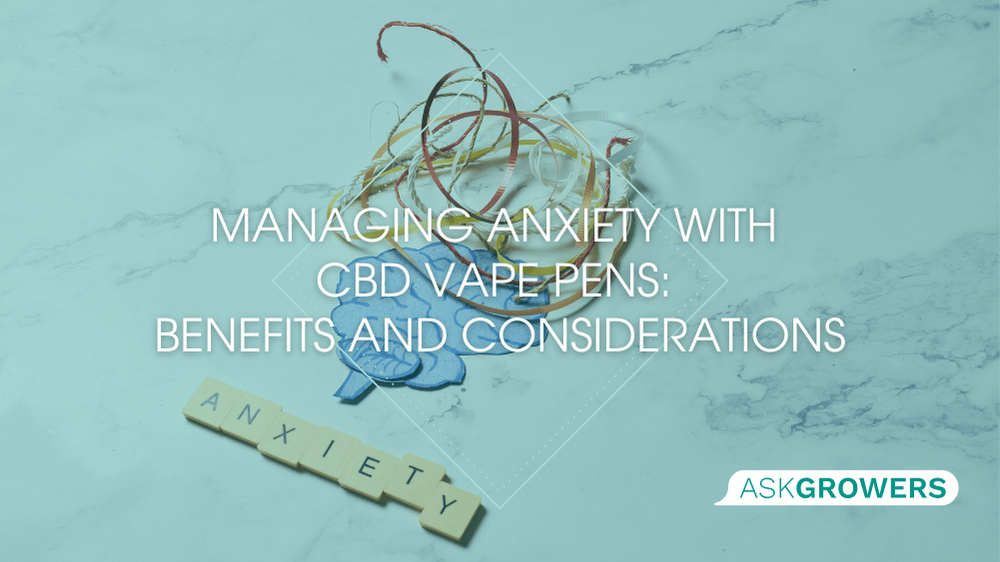
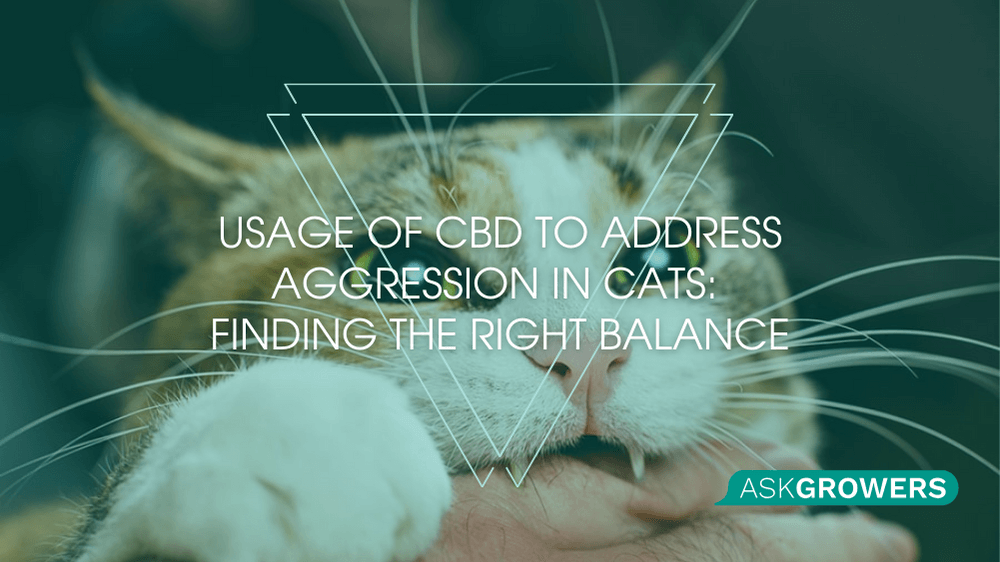
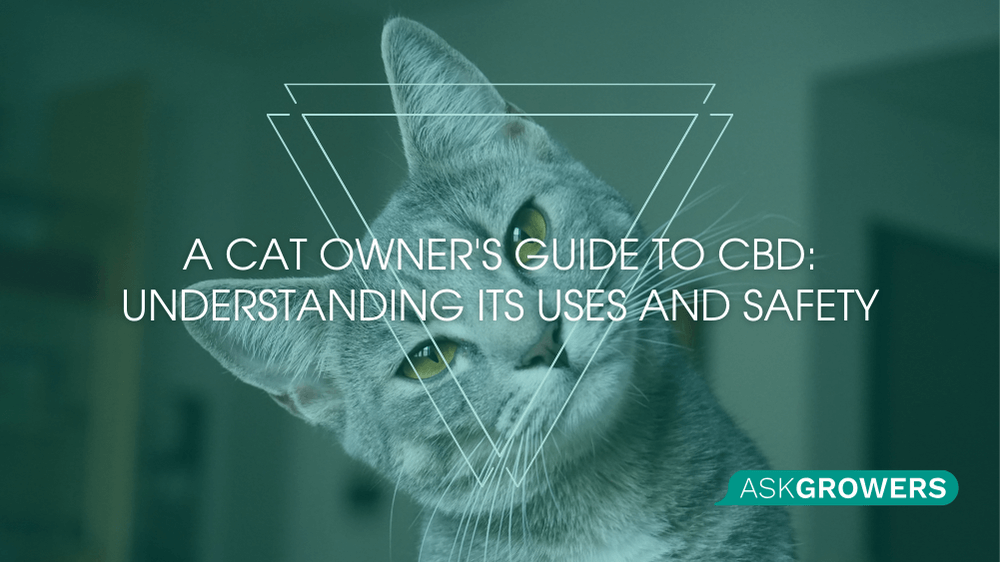
Be the first and share your opinion
Write a Review